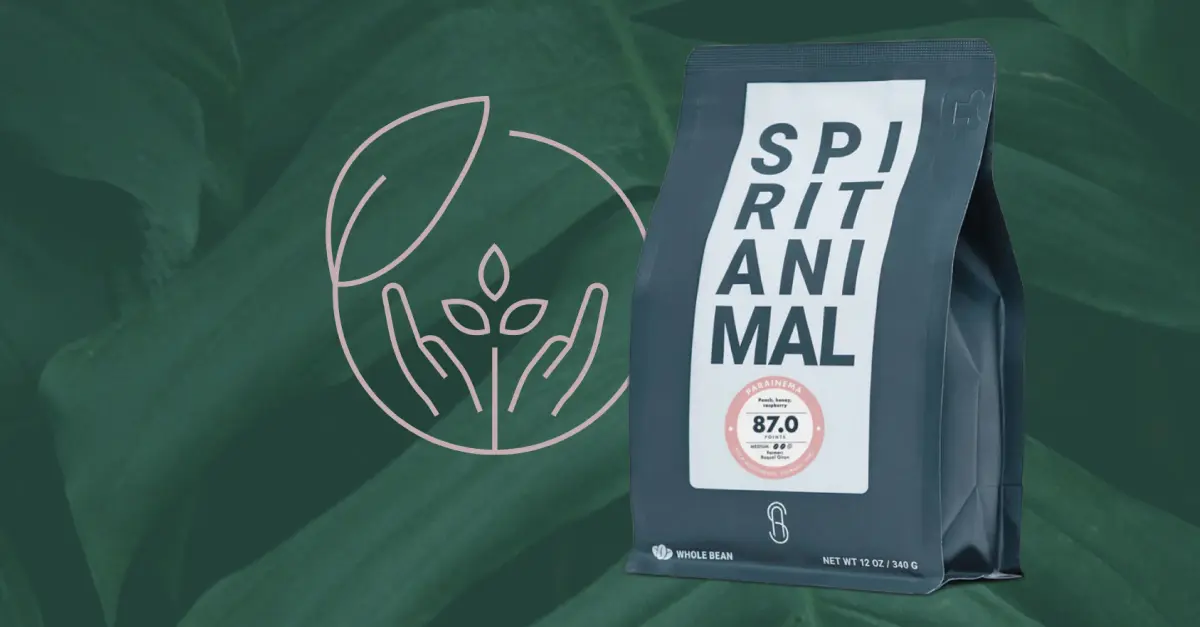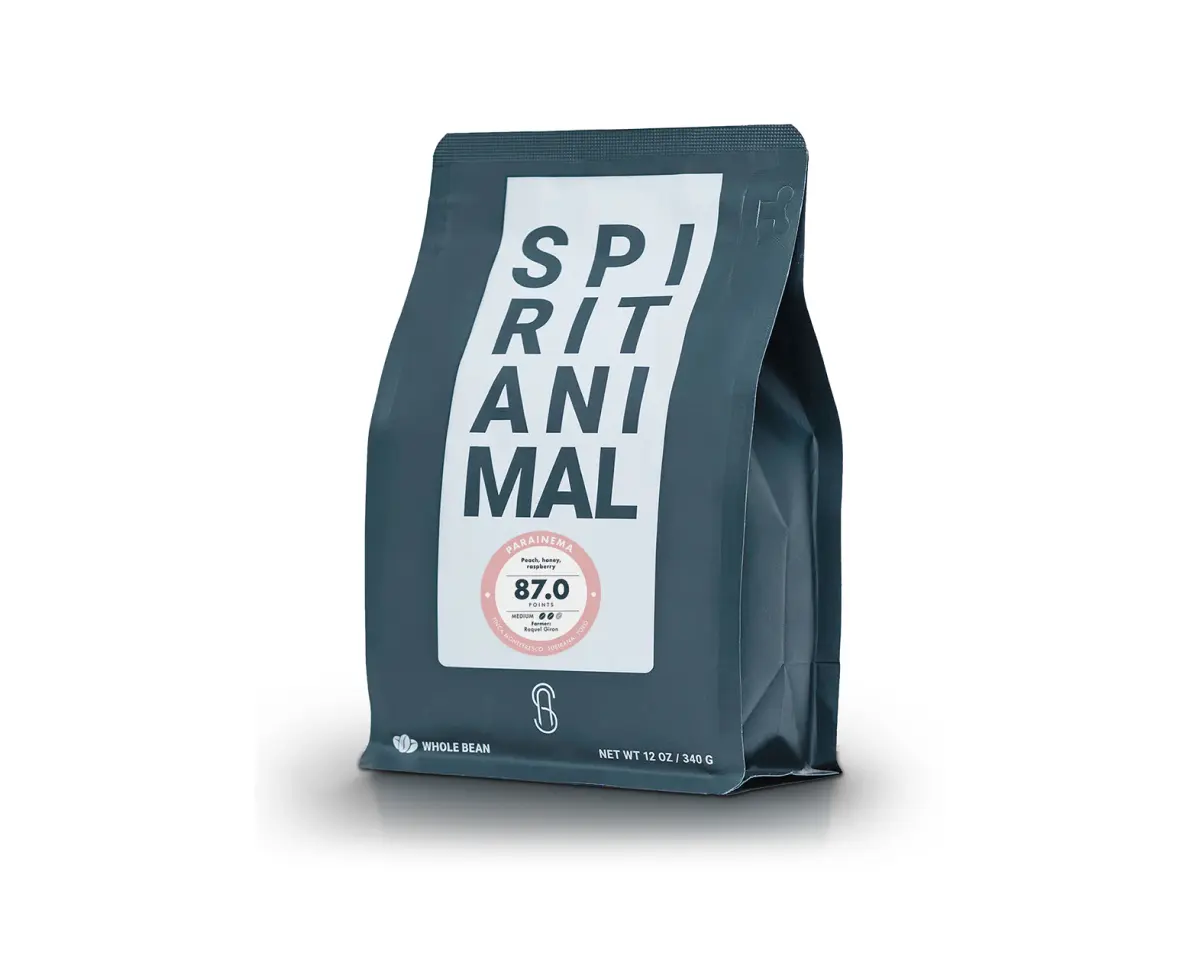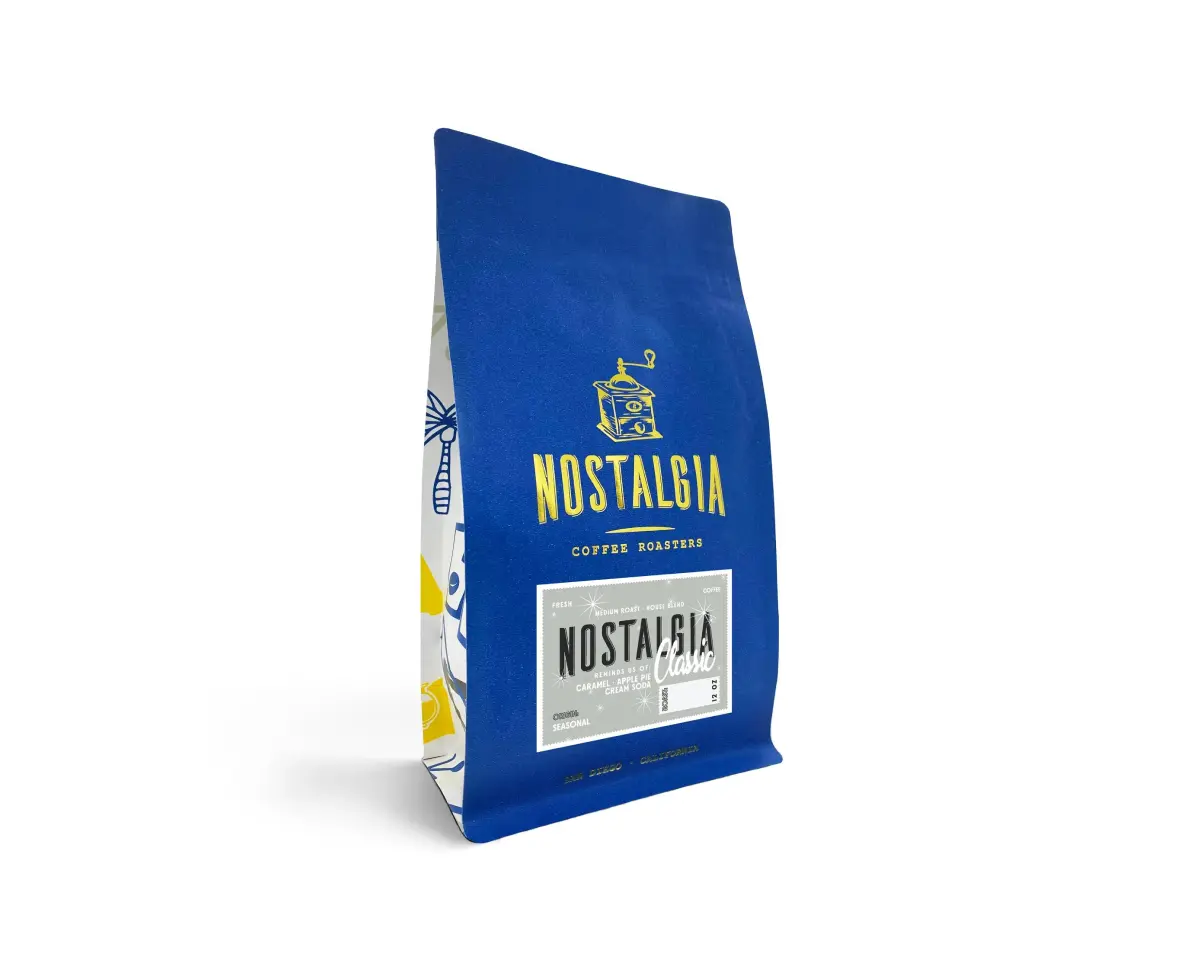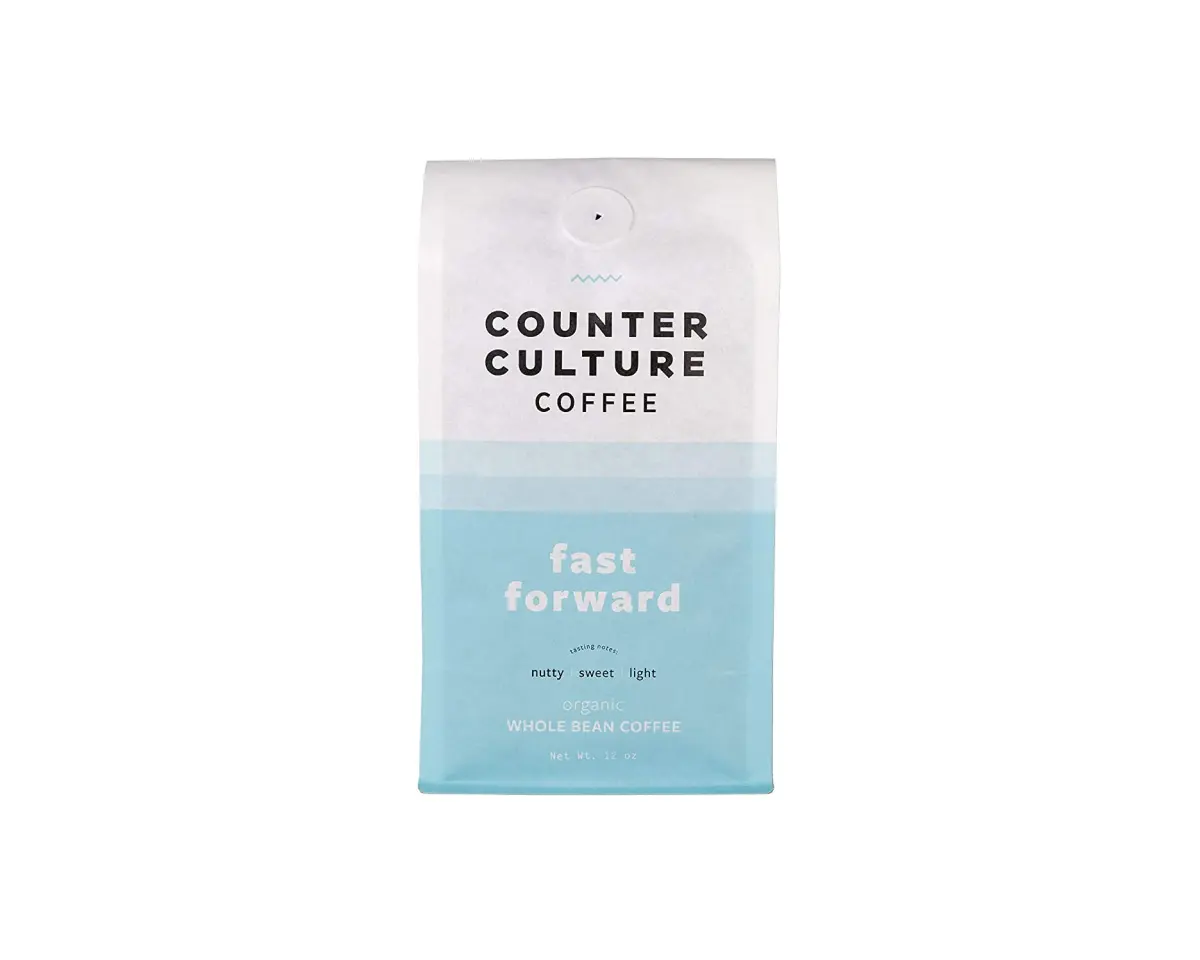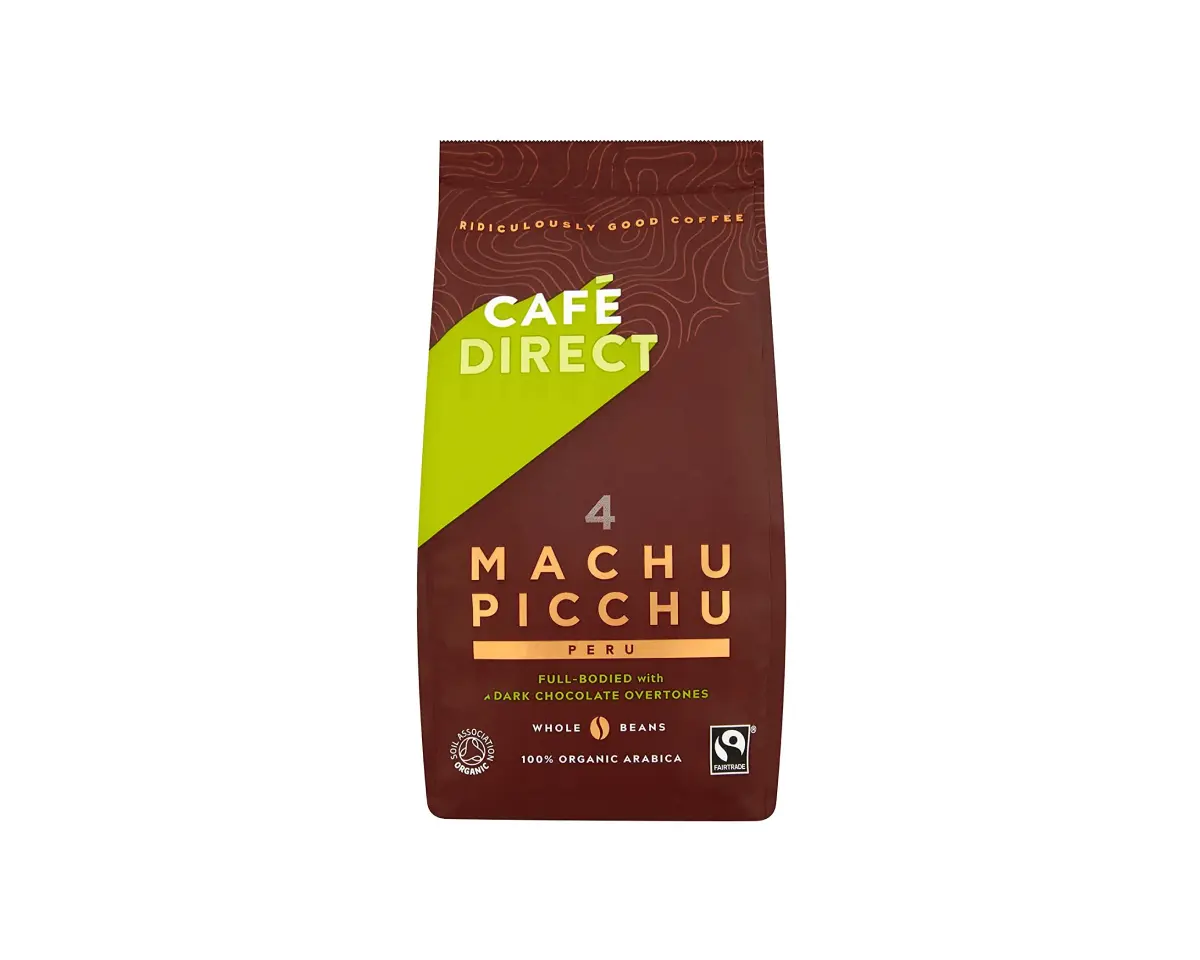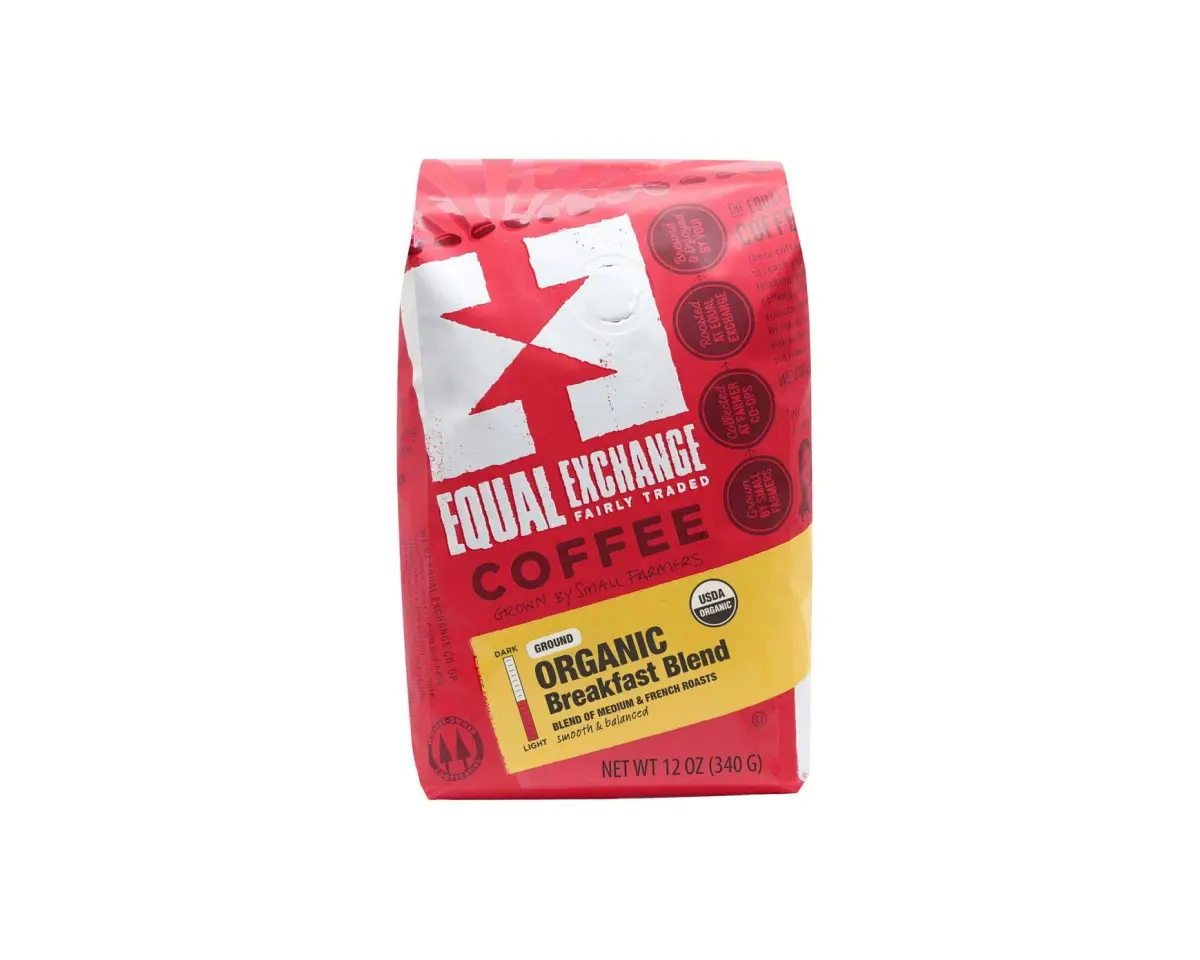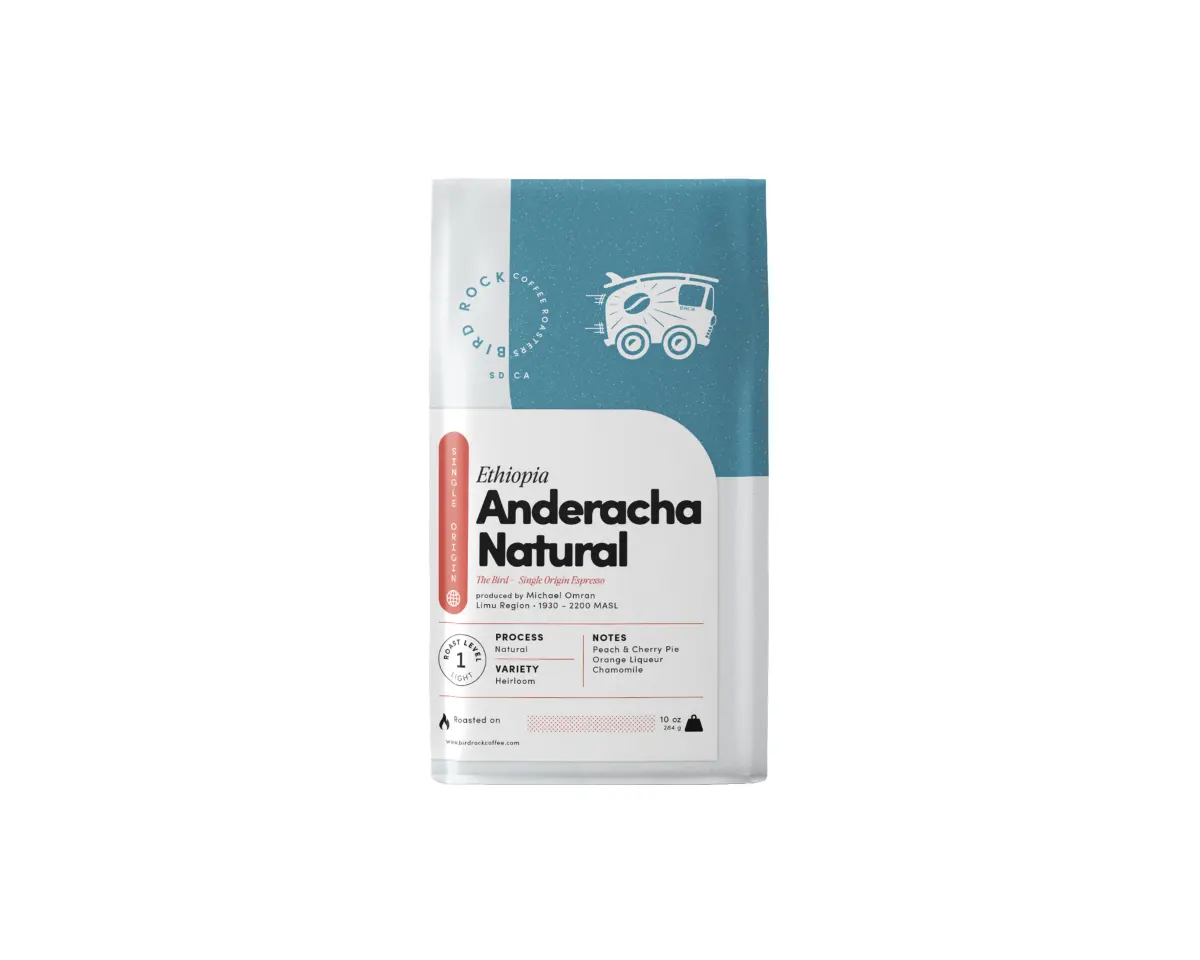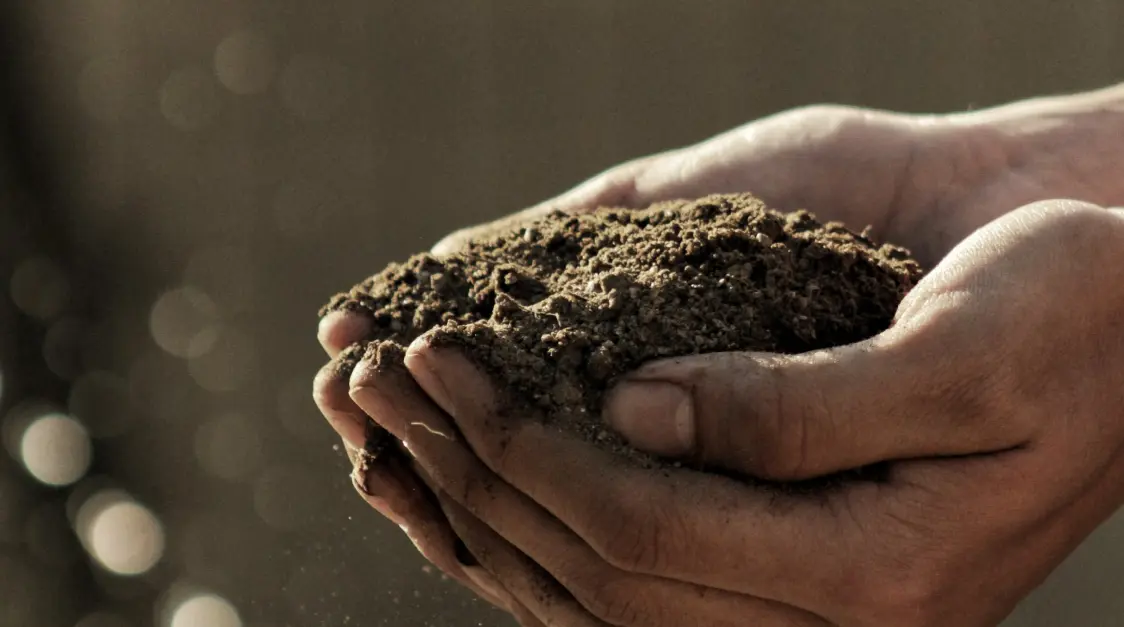Are you committed to consuming clean coffee both through planting and harvesting practices and ethical supply chains? Choosing the best sustainable coffee brands for your supply is the way to go. Unbeknownst to many consumers, drinking non-sustainable coffee affects everyone globally, including the drinker.
After all, commercial coffee usually takes up large masses of land for plantation-style growing. Now, this leads to the cutting of shading trees and even topsoil erosion, among others. This is contrary to the traditional peasant farmer practices that favor environmental conservation.
Unfortunately, with the low wages and only 10% of the total global coffee industrial profits they receive, farmers cannot thrive without fair trade coffee. By consuming sustainable coffee, you are choosing coffee that has been grown to consider nature’s well being. Further, the coffee is grown to ensure better conservation efforts and improved livelihood of the coffee farmers.
Now, not all coffee is sustainable. But, the good news is you can find a good variety of brands that exclusively dishes out this type of coffee. We’ve taken the time to deep search for the best sustainable coffee brands to cater to clean and conscious coffee drinkers. Here is a full guide into everything there is to know about sustainable coffee – along with our 4 winners! To learn more, read 6 Best Ethical And Sustainable Coffee Companies.
Our Top Picks for Sustainable Coffee Brands
Are you ready to start your journey of enjoying sustainable coffee? These 7 brands are an excellent place to start based on your needs.
1. Spirit Animal Coffee
Spirit Animal Coffee is a brand that not only offers high-quality coffee but also promotes sustainability through its business practices. The company believes in sourcing coffee from ethical and sustainable farms, which ensures that the coffee is grown in a way that is environmentally friendly and socially responsible.
The brand’s commitment to sustainability is evident in its packaging. Instead of using traditional single-use plastic bags, Spirit Animal Coffee uses compostable bags made from plant-based materials. This reduces waste and ensures that the packaging is eco-friendly.
In addition to sustainable sourcing and packaging, Spirit Animal Coffee also gives back to the community. A portion of the proceeds from each bag of coffee sold goes to wildlife conservation efforts. This aligns with the brand’s commitment to protecting and preserving the environment.
This coffee is unique in that it features notes of peach, honey, and raspberry, which all come together to create a delicious cup of coffee. What’s more, the coffee is roasted medium-to-light, meaning you’ll get a smooth cup without any burnt flavors.Overall, Spirit Animal Coffee is a great option for coffee lovers who want to support a sustainable and ethical brand. By choosing this brand, customers can enjoy delicious coffee while also making a positive impact on the planet and its wildlife.
Pros
- High-quality coffee with a unique and complex flavor profile.
- Sourced from a single origin, which means the coffee has a distinct and consistent flavor.
- Grown using sustainable and ethical practices, which aligns with the brand’s commitment to environmental and social responsibility.
- Comes in eco-friendly packaging made from compostable materials, which reduces waste and ensures that the packaging is biodegradable.
- Supports wildlife conservation efforts through a portion of the proceeds going to conservation organizations.
Cons
- Sourced from a single origin, which may limit variety for those who prefer blends or different flavor profiles.
- Availability may be limited due to the small-batch production and single origin sourcing.
2. Nostalgia Coffee Roasters
Nostalgia Coffee Roasters is a brand that is not only passionate about coffee but also dedicated to sustainability. The company sources high-quality coffee beans from sustainable and ethical farms around the world. This ensures that the coffee is grown in a way that is environmentally friendly and socially responsible.
The brand’s commitment to sustainability is also reflected in its packaging. Nostalgia Coffee Roasters uses eco-friendly bags made from compostable materials, which reduces waste and ensures that the packaging is biodegradable.
In addition to sustainable sourcing and packaging, Nostalgia Coffee Roasters also works to reduce its carbon footprint. The company has invested in energy-efficient equipment and practices, such as roasting in small batches, which helps to reduce energy consumption.
Furthermore, Nostalgia Coffee Roasters supports local communities by sourcing from local suppliers and partnering with organizations that promote sustainable practices. Nostalgia Coffee Roasters is a brand that is committed to sustainability and ethical practices. By choosing this brand, customers can enjoy delicious coffee while also supporting a brand that is making a positive impact on the planet and its people.
Pros
- High-quality coffee with classic and familiar flavor profiles.
- Sourced from sustainable and ethical farms around the world, which aligns with the brand’s commitment to environmental and social responsibility.
- Comes in eco-friendly packaging made from compostable materials, which reduces waste and ensures that the packaging is biodegradable.
- Offers a wide range of blends and roasts to suit different taste preferences.
- Can be purchased in both whole bean and ground form to accommodate different brewing methods.
Cons
- Availability may be limited due to the small-batch production and sustainable sourcing practices.
3. Tiny Footprint Coffee
[
 .webp)
.webp)
Tiny Footprint Coffee is a brand that is committed to sustainability and environmental consciousness. The company sources its coffee beans from sustainable farms that use eco-friendly practices, such as shade-grown farming and organic cultivation. This ensures that the coffee is not only high-quality but also grown in a way that is environmentally responsible.
The brand’s commitment to sustainability is also reflected in its packaging. Tiny Footprint Coffee uses eco-friendly bags made from compostable materials, which reduces waste and ensures that the packaging is biodegradable.
In addition to sustainable sourcing and packaging, Tiny Footprint Coffee has a unique sustainability initiative called the “Carbon Negative Project.” For every pound of coffee sold, the brand plants trees in a rainforest in Ecuador to offset the carbon footprint of the coffee production process. This initiative has helped to remove more carbon from the atmosphere than the brand’s entire operation produces.
Pros
- High-quality coffee with a rich and smooth flavor profile.
- Sourced from a single origin in Peru, which means the coffee has a distinct and consistent flavor.
- Grown using sustainable and ethical practices, which aligns with the brand’s commitment to environmental and social responsibility.
- Comes in eco-friendly packaging made from compostable materials, which reduces waste and ensures that the packaging is biodegradable.
- Offers a unique “Carbon Negative” initiative, where a portion of the proceeds go towards planting trees in a rainforest in Ecuador to offset the carbon footprint of the coffee production process.
Cons
- The unique flavor profile may not be appealing to everyone’s taste preferences.
4. Counter Culture Coffee
Based in Durham, North Carolina, Counter Culture Coffee has been a specialty coffee roaster since 1995. The specialty roaster sources single-origin and specialty coffee directly from the source. If you want to sample cool and unique flavors, this is the brand you should be going for.
According to the roaster, their coffee is sustainably sourced, quality focus transparently traded, and B Corp certified. The roaster also offers regular retail purchasing, subscription & gift subscription programs, and wholesale options. With this roaster, you will find a range of single-origin coffee, particularly from Latin America and Africa, along with masterfully crafted and fun blends.
Counter Culture Coffee also has multiple training centers/community hubs for coffee education. These hubs are a home base for their regional teams and also allow wholesale partners and coffee lovers to learn more about the world of sustainable coffee.
Pros
- Sourced from multiple origins, which offers a diverse flavor profile and variety.
- Grown using sustainable and ethical practices, which aligns with the brand’s commitment to environmental and social responsibility.
- Comes in eco-friendly packaging made from compostable materials, which reduces waste and ensures that the packaging is biodegradable.
- Offers a blend that is specifically designed for cold brew, which can be convenient for those who enjoy cold coffee.
Cons
- Availability may be limited due to the small-batch production and sustainable sourcing practices.
- Some consumers may prefer more adventurous or trendy coffee brands over approachable blends.
5. Cafedirect
Launched in 1991, Cafédirect is a UK-based coffee company. The coffee company works directly with farmer cooperatives in Peru, Mexico, and Costa Rica and sells the coffee on their behalf. Cafédirect is also one of the very first UK-based coffee companies to receive fair-trade and B corp certification.
Today, the award-winning company scores the highest on the B Corp consumer coffee brand list. The company sells single-origin coffee from around the world, delicious blends, and specially selected coffee called London Fields.
Pros
- High-quality coffee with a rich and smooth flavor profile.
- Sourced from a single origin in Peru, which means the coffee has a distinct and consistent flavor.
- Grown using sustainable and ethical practices, which aligns with the brand’s commitment to environmental and social responsibility.
- Comes in eco-friendly packaging made from compostable materials, which reduces waste and ensures that the packaging is biodegradable.
- Supports small-scale farmers in Peru, helping to promote fair trade and economic empowerment for local communities.
Cons
- Sourced from a single origin, which may limit variety for those who prefer blends or different flavor profiles.
6. Equal Exchange
Equal Exchange offers a variety of fair trade and organic food crops, such as coffee, tea, cocoa, and snacks. The brand prides itself in directly purchasing from small-scale farmers from whom they have harnessed long-term relationships and partnerships.
The brand was born in 1986 with the first export being fair trade coffee from Nicaragua. In fact, the very first export reflects the brand’s mission. During this time, there was a US embargo against Nicaragua’s Sandinista government.
Nevertheless, with the peasant farmer’s well being in mind, the founders of the brand imported their first coffee from this very country. What’s special about this brand is also their co-op model. This democratic-centered model features a worker-owner vote, allowing partners to access financial information and invest equal shares into the business.
You will find a variety of coffees including bulk whole bean, fellowship blends, pillow packs, and even, single serve cups.
Pros
- High-quality coffee with a variety of flavor profiles and origins to choose from.
- Sourced from small-scale farmers around the world, which promotes fair trade and supports local communities.
- Grown using sustainable and organic practices, which aligns with the brand’s commitment to environmental and social responsibility.
- Comes in eco-friendly packaging made from compostable materials, which reduces waste and ensures that the packaging is biodegradable.
- Offers a unique “Fairly Traded” initiative, where the brand works directly with farmer co-operatives to ensure fair prices and wages for workers.
Cons
- The variety of flavor profiles may be overwhelming for those who prefer a more simplified coffee selection.
7. Bird Rock Coffee Roaster
Bird Rock Coffee Roaster is a San Diego-based roaster that trades in direct trade and ethically sourced coffee. The award-winning coffee roaster is a Q-Grader certified roaster and deals in single-origin, blends, and blue-label coffee.
You can opt to purchase the coffee in retail, subscription programs, or wholesale. What makes this roaster interesting is it offers a brief but transparent history of all the coffee listed on its site. So, before investing in the coffee, you know exactly what you are getting.
Pros
- High-quality coffee with a range of single-origin and blended options available.
- Sourced from small-scale farmers around the world, which promotes fair trade and supports local communities.
- Grown using sustainable and ethical practices, which aligns with the brand’s commitment to environmental and social responsibility.
- Offers a variety of roast profiles and brewing methods to suit different taste preferences.
- Provides detailed information about the coffee’s origin and sourcing on their website, which helps to educate consumers about the product they are purchasing.
Cons
- Availability may be limited due to the small-batch production and sustainable sourcing practices.
What Is Sustainable Coffee?
Sustainable coffee refers to coffee grown by conserving nature and reducing assault on the environment. Sustainable coffee also denotes coffee grown and involved in a supply chain that helps to improve the livelihood of farmers and farm hands that process the coffee for sale and export.
Sustainable coffee is usually marketed for this sustainability and comes in various categories. Some of the common ones include organic, Fairtrade, Rainforest Alliance certified, and bird-friendly/shade-grown. Many people think of organic or fair trade coffee when it comes to sustainable coffee.
While the goal is similar, there is a myriad of coffee classifications used based on the grower/farmer’s participation or the supply chain. Sustainable coffee categories usually cover environmental, social, and economic parameters. Typically such coffee is usually independently certified or certified by third-party accreditation to make it easily identifiable.
Organic Coffee
Organic coffee is coffee grown by following organic farming practices. This means that the farmer uses 100% natural means and limits the use of certain processed pesticides and fertilizers. Organic farming also involves using cycle resources and conserving biodiversity.
For instance, big farmers or corporations invest in large plantation-style coffee farming. This, in turn, affects other parts of nature, including increased soil erosion and losing other nature-promoting flora. On the other hand, many peasant farmers usually grow coffee as a cash crop along with other foods that they consume with their families.
In this case, you will notice that they have coffee vines paired with shading trees, other food crops, and even ground-covering plants. This practice helps to conserve the land, provide much-needed shade, and even prevent topsoil erosion.
Other plants included also act as mulch or natural fertilizer. This means that the farm naturally feeds and takes care of itself. So, the farmer does very little in terms of fertilizing the crops and eliminating pests. But, organic coffee also extends beyond the farms and plantains.
When processed for export and shelf storage, sustainable coffee is never treated with any industrial procedures, solvents, or additives. Organic coffee comes pre-certified.
Fairtrade Coffee
Fairtrade coffee refers to coffee that features a fair supply chain with the producers/farmers enjoying equitable profits and relationships. The Fairtrade practice was developed to protect the farmers who typically received the lower and unfair end of coffee trading. For example, while the peasant farmer produces and processes the product, they only receive less than 1% of the total earning of the product.
Due to the unfair pricing and exploitation in the industry, farmers in coffee-growing regions turn to other types of economical crops. Many of these crops are usually sold locally, allowing the farmer to look for their own market and enjoy higher profits than selling coffee.
The fair trade movement is designed to reduce these incidents by promoting higher prices for exports, which, in turn, helps to improve the environmental, social, and economic well being of the farmer. Today, fair trade coffee is easily identifiable by the certification label on the packaging.
However, you can also look out for telltale signs. For instance, you may notice coffee from a roastery or grocery store has a much lower price than the standard you observe with others. Chances are that the farmer or producer of the coffee was paid very low.
Remember, coffee goes through a long supply chain and may take weeks to reach the final destination. So, you have to consider the production fees, farmhand wages, village-to-city to intercontinental travel, and storage.
Therefore, it makes sense for the cost of the coffee on the grocery store or roastery shelf to be slightly high. As a general rule of thumb, anything less than $8 per pound for roasted coffee should be alarming. Fairtrade commodities practice is used in a variety of products, including coffee, cocoa, and flowers, to name a few.
This practice is also usually focused on producers and products exported from low-income to high-income countries, although sometimes within the domestic market as well.
Rainforest Alliance Certified
The Rainforest Alliance is an international NGO that operates in over 70 counties and is founded by American environmentalist, Daniel Katz. This NGO is geared towards protecting nature and the livelihood of farmers and forest communities by creating sustainable social and market environments.
You will notice that some coffee comes with an environmental certification for sustainability from the Rainforest Alliance. This certification isn’t limited to coffee alone, but is awarded to plenty of other agricultural products.
A rainforest alliance certification simply means that the particular product, in this case coffee, is produced by farmers, foresters, or companies that collaborate to create a better world in which people and nature coexist harmoniously. So, investing in Rainforest Alliance-certified coffee means that a good fraction of the money you pay goes back to be invested in the coffee-growing communities.
Bird Friendly Coffee
Bird-friendly refers to shade-grown coffee that benefits songbirds. This certification is given out by the Smithsonian Migratory Bird Center (SMBC). Bird-friendly coffee is organically grown on bird-friendly farms with zero use of pesticides while promoting healthier bird habitats.
According to the SMBC, up to 75% of the world’s coffee today is farmed without leaving any room for birds to thrive naturally. Opting to grow bird-friendly coffee naturally reduces the use of artificial herbicides and fertilizers as the birds promote more natural growing.
Further, it helps boost biodiversification by attracting migratory birds. Moreover, since the coffee is organically grown, bird-friendly coffee beans develop better taste and flavors due to the minimal to zero use of chemicals and other artificial components.
Benefits Of Sustainable Coffee
Choosing sustainable coffee over bib-sustainable coffee comes with a variety of benefits.
Environmental Benefits
Sustainable coffee is grown by adhering to natural and organic practices. To harvest this type of coffee, a farmer or coffee producer typically lets nature do the work. For instance, as mentioned before, peasant farmers usually pair their coffee trees with other plants, including shade trees, ground-covering plants, and other cash crops.
This means that the ecosystem takes care of itself in many ways. Among the environmental benefits of sustainable coffee include the reduced use of pesticides and even, the preservation of biodiversity.
Social Benefits
Sustainable coffee is also known for being fair trade and ethical coffee, ensuring the farmer and their community also benefit from the crop. So, investing in this type of coffee helps to ensure fairer wages for farmers and support for local communities, among others.
You will notice that fair-trade coffee is usually reasonably priced. If coffee is too cheap, chances are it is not fair trade coffee. This is because, with a lower cost, it gets you to wonder if there was enough to pay the farmer and still keep the coffee so low priced.
Better Reputation
Further, farmers that practice sustainable coffee farming and have their coffee certified tend to have a more receptive experience from international coffee organizations. This opens them up to larger groups of ethical coffee traders and sellers.
Some sustainable coffee organizations even work with government departments of agriculture. Farmers that farm sustainable coffee can enjoy massive financial assistance from these departmental programs. Ultimately, going for sustainable coffee brands does better improve the livelihood of farming communities while protecting the environment and preserving nature.
Further, you can rest assured that you are investing in the best quality coffee at the best prices by investing in sustainable coffee brands.
Healthier Harvest
Employing sustainable coffee farming practices is not just about the monetary benefits and environmental conservation. You also get healthier and safer coffee beans with much better taste. This will surely make your coffee more popular among retailers and consumers.
Challenges To Achieving Sustainable Coffee
As with any other movement, the sustainable coffee movement also comes with its challenges.
Lack of Consumer Awareness and Demand
The number one challenge experienced is the lack of consumer awareness and demand. Many consumers don’t really take the time to understand the difference between sustainable and other types of coffee.
So, when shopping for coffee, not many people will take the time to confirm that it’s sustainable. On the other hand, other people may seek out sustainable coffee without truly understanding the purpose behind it.
High cost and Low Supply
The purpose of sustainable coffee is to ensure environmental protection and boost the livelihood of farmers and producers. Generally, coffee goes through a long supply chain. So, to truly ensure enough profits are secured for the producers, the cost has to match the long supply chain.
Similarly, adequate resources are needed for sustainable farming and environmental preservation. This means that the cost of coffee has to be slightly higher than other coffees when it hits the shelves. Moreover, sustainable coffee has a slightly higher price tag, but, this doesn’t mean that it is readily available.
Sustainable coffee is still a not-so-regular thing on store shelves. Some coffee roasters or retailers are all about processing coffee, putting it out on the market, and securing more profits. This means that many will go after lower-costing coffee. This, in turn, creates a deficit of sustainable coffee on the market.
Resistance from Traditional Coffee Producers and Farmers
The lack of understanding about sustainable coffee isn’t limited to consumers. Many traditional coffee producers and farmers have limited knowledge of sustainable coffee. This, in turn, lets them put up a lot of resistance to joining sustainable coffee movements. Instead, many of these farmers choose back door means or cooperatives (that don’t have their interests at heart) as their means to find global markets.
Steps To Take For Sustainable Coffee
To truly enjoy the best coffee, you can’t go wrong by choosing sustainable coffee brands. You will not only enjoy the best tasting coffee. You can also rest assured that you are a conscious buyer, ensuring that the producer of the coffee truly gets what they deserve.
How To Find And Purchase Sustainable Coffee
Sustainable coffee can be easily distinguished from other types of coffee right on the retailer’s or roaster’s shelf. Look out for a label or seal on the coffee’s packaging to confirm its sustainable coffee. You will find seals or labels that say “organic”, “fair trade”, or “Rainforest Alliance certified”.
Other sustainable coffee brands are usually transparent about their supply chain, making it easy to trace the origins of the coffee you plan to consume. Traceable coffee is usually sustainable, too.
Support Sustainable Coffee
Evidently, sustainable coffee is more beneficial than regular coffee for both the consumer (better flavors and quality) and the producer. Supporting sustainable coffee sales improves the social and economic well being of the producer and supplier.
Similarly, sustainably farmed coffee supports environmental conservation. This includes reducing further aggravation on the environment and contributing to global warming/climate change. Traditional coffee farming combines the use of diverse flora which, in turn, boosts biodiversity.
It also prevents environmental depletion and pollution. To further support sustainable coffee movements, consumers should also support and advocate for policies that favor this movement.
Conclusion
Sustainable coffee is certainly worth the attention and investment. After all, this coffee comes with all the positives. Whether it’s a better taste you are after or want to ensure equal pay for producers, sustainable coffee lets you do so.
Investing in sustainable coffee is also another way to promote environmental conservation and reduce the further aggravation of climate change. To start on this fulfilling and flavor-boosting journey, you can start by investing in coffee from the best sustainable brands. Learn more about what makes a company sustainable and fair-trade: 6 Best Ethical And Sustainable Coffee Companies.
